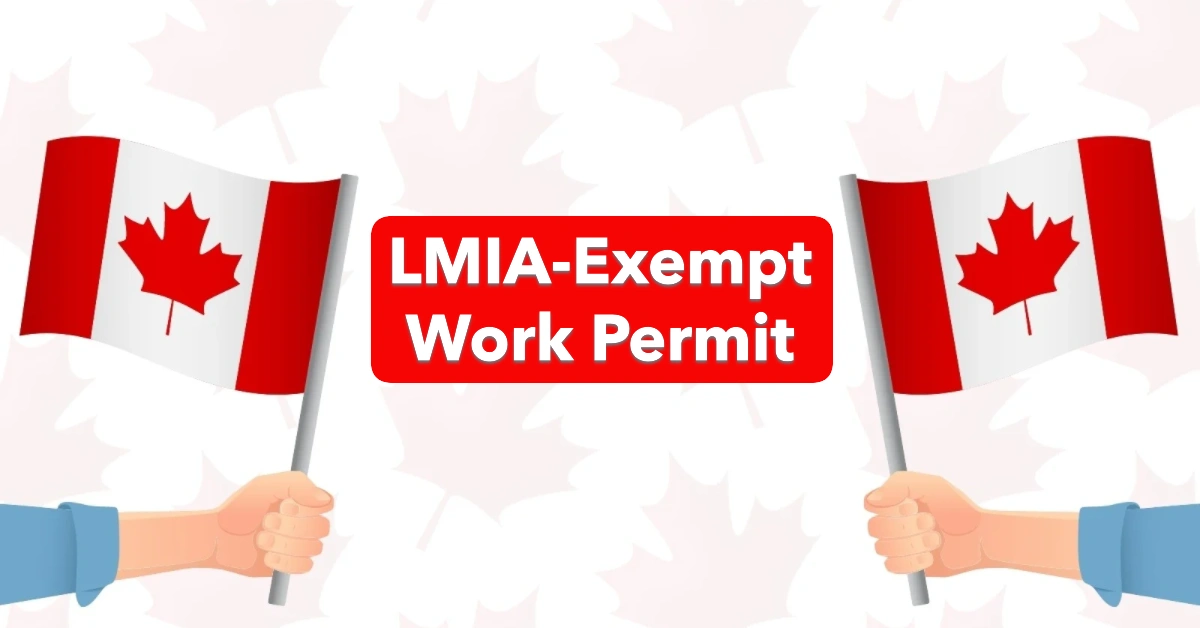Canada continues to attract global talent through streamlined immigration pathways, and one of the most advantageous routes is the LMIA-exempt work permit. Citizens from certain countries benefit from Canada’s Free Trade Agreements (FTAs), allowing them to bypass the complex and often costly Labour Market Impact Assessment (LMIA) process.
If you’re wondering whether you qualify for a Canada LMIA-exempt work permit, this comprehensive guide will walk you through the eligible nationalities, types of permits available, requirements, and how to apply. We’ll reference these LMIA exempt work permit options again and again—because for many skilled professionals, this could be your fastest route to working in Canada.
Table of Contents
What is an LMIA-Exempt Work Permit?
A Labour Market Impact Assessment (LMIA) is a document employers usually must obtain to prove that no Canadian citizen or permanent resident is available to fill a job position. However, under certain international agreements, foreign nationals can bypass this requirement and apply directly for a Canada LMIA-exempt work permit.
These exemptions fall under Canada’s International Mobility Program (IMP) and are typically available through Free Trade Agreements like:
- CUSMA (Canada-United States-Mexico Agreement)
- CETA (Canada-European Union Comprehensive Economic and Trade Agreement)
- CPTPP (Comprehensive and Progressive Agreement for Trans-Pacific Partnership)
- CCFTA, CCoFTA, and others
Let’s explore these LMIA-exempt work permit pathways again and again by region and agreement.
12 IRCC Employees Misconduct Caught in Immigration File Tampering, Report Finds
Countries Eligible for LMIA-Exempt Work Permits
Citizens of the following countries may be eligible for Canada LMIA-exempt work permits under Free Trade Agreements:
CUSMA (Canada-US-Mexico Agreement)
- Eligible countries: United States, Mexico
- Permit categories: Professionals, Intra-Company Transferees, Investors, Traders
CETA (European Union)
- Eligible countries (27): Austria, Belgium, Bulgaria, Croatia, Cyprus, Czechia, Denmark, Estonia, Finland, France, Germany, Greece, Hungary, Ireland, Italy, Latvia, Lithuania, Luxembourg, Malta, Netherlands, Poland, Portugal, Romania, Slovakia, Slovenia, Spain, Sweden
CPTPP (Indo-Pacific Agreement)
- Eligible countries: Australia, Brunei, Chile, Japan, Malaysia, Mexico, New Zealand, Peru, Singapore, Vietnam
Other FTAs
- Chile: Canada-Chile Free Trade Agreement (CCFTA)
- Colombia: Canada-Colombia Free Trade Agreement (CCoFTA)
These citizens have a major advantage: they can apply for a LMIA exempt work permit instead of going through the standard, time-consuming LMIA process.
LMIA-Exempt Work Permit Categories & Requirements
Across all FTAs, applicants must meet general admissibility requirements and be entering Canada to perform pre-arranged services. Here’s how the categories break down:
1. Professionals
- Must have a job offer in an eligible occupation (e.g., engineer, consultant, IT specialist)
- Must meet education and licensing requirements
- Permit validity: Up to 1–3 years (varies by FTA)
2. Intra-Company Transferees
- For employees transferred within multinational companies
- Must have at least 1 year of continuous employment with a related entity abroad
- Permit validity: Up to 3–5 years
3. Investors and Traders
- For individuals managing substantial investments or facilitating trade between their country and Canada
- Requires demonstration of significant investment or trade activity
- Permit validity: Usually 1 year (renewable)
4. Technicians and Technologists (CETA, CPTPP, CCoFTA only)
- Must have a 2–3-year technical degree and work experience
- Must be employed under a valid service contract
- Permit validity: Up to 1 year (CPTPP), 12 months within 24 (CETA)
Canada Introduces 2025 Border Bill to Enhance Immigration Controls and Tackle Crime
How to Apply for an LMIA-Exempt Work Permit
Employer Steps
- Submit job offer via the Employer Portal
- Pay $230 employer compliance fee
- Receive a unique offer of employment number
Applicant Steps
- Check eligibility under the relevant FTA and category
- Gather required documents, including proof of qualifications and contract
- Complete the online application via IRCC
- Pay $155 work permit fee (+$85 biometrics fee if required)
- Submit application and await decision
All applicants must be admissible to Canada—criminality, health concerns, or misrepresentation can lead to refusals even if qualifications are met.
Processing Time for LMIA-Exempt Work Permits
Work permit processing times vary by country, but most applications are processed within:
- 3 weeks to 5 months, depending on location and program stream
Be sure to check updated timelines on the IRCC website.
Why LMIA-Exempt Work Permits Are a Game-Changer
If you’re from an FTA partner country, applying for a Canada LMIA-exempt work permit can mean:
- Faster processing
- Lower employer costs
- No need for job market testing
- More predictable outcomes
That’s why we mention LMIA-exempt work permits again and again—because they’re among the most powerful tools in Canada’s work immigration arsenal.
Final Thoughts: Should You Apply?
If you’re a citizen of one of the 40+ eligible nations, and meet the professional, educational, or investment requirements, an LMIA-exempt work permit could be your best route to working in Canada legally and quickly.
This route is efficient, employer-friendly, and—most importantly—designed to foster international business and mobility. Whether you’re a U.S. tech professional, a Chilean investor, or a French engineer, this streamlined work authorization is worth pursuing again and again.

